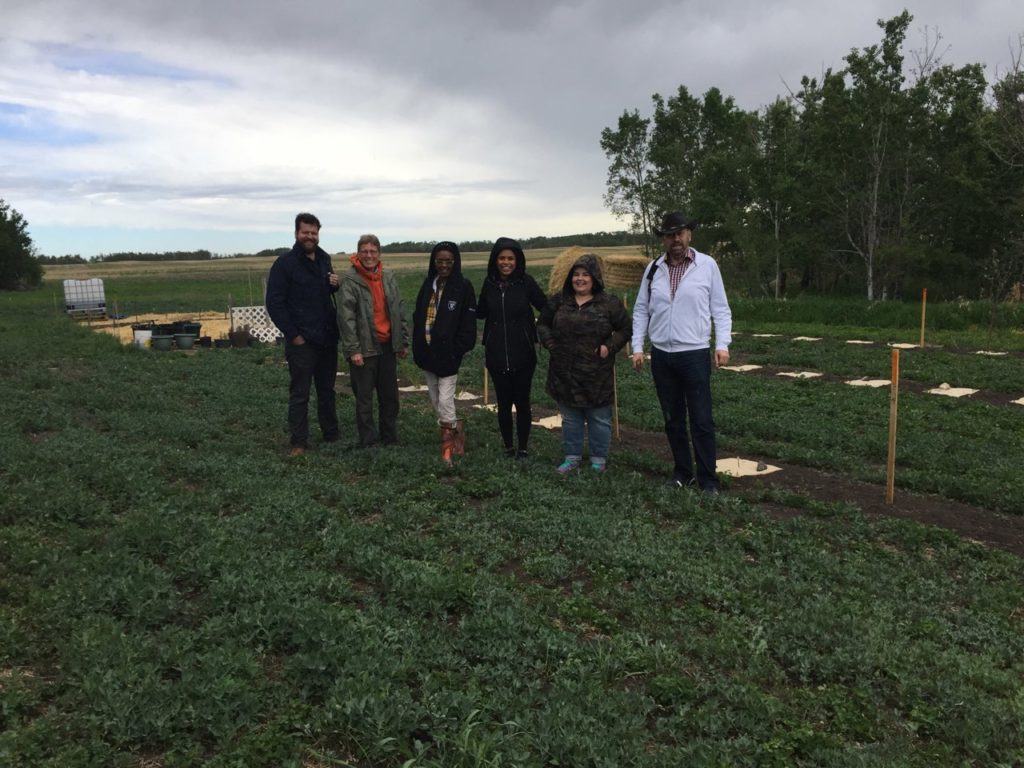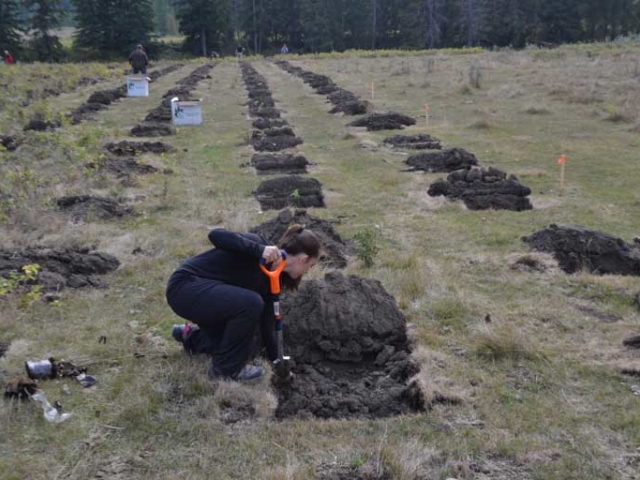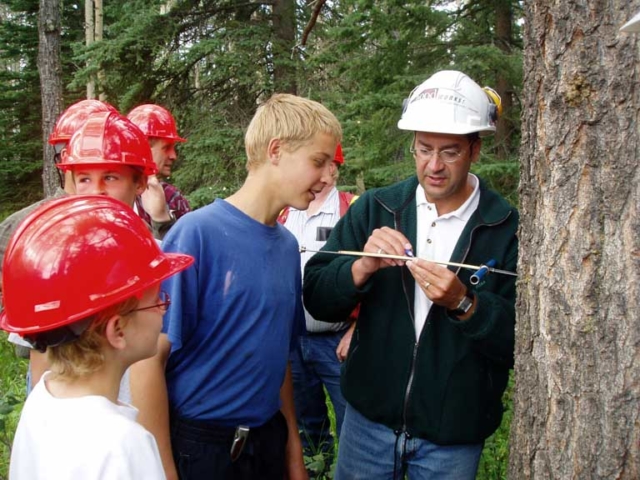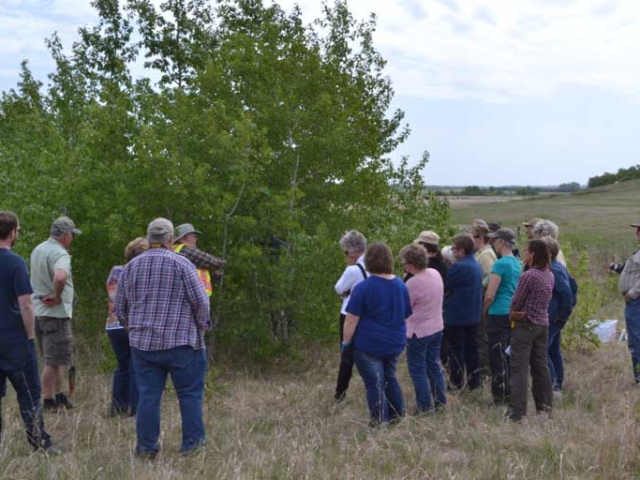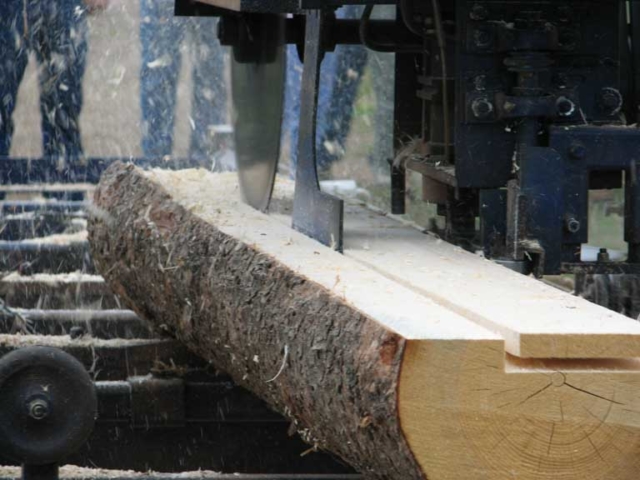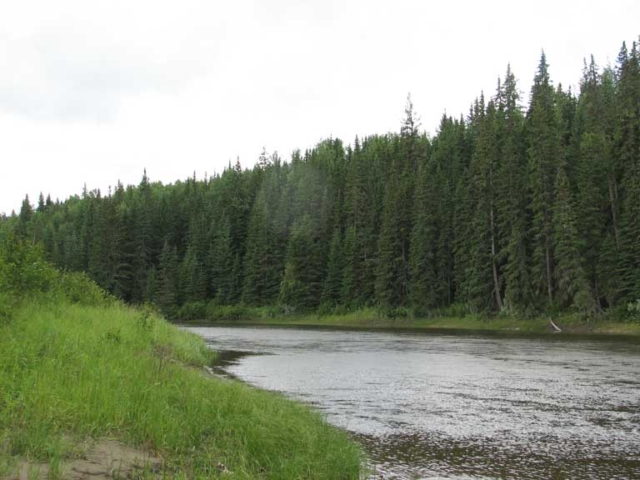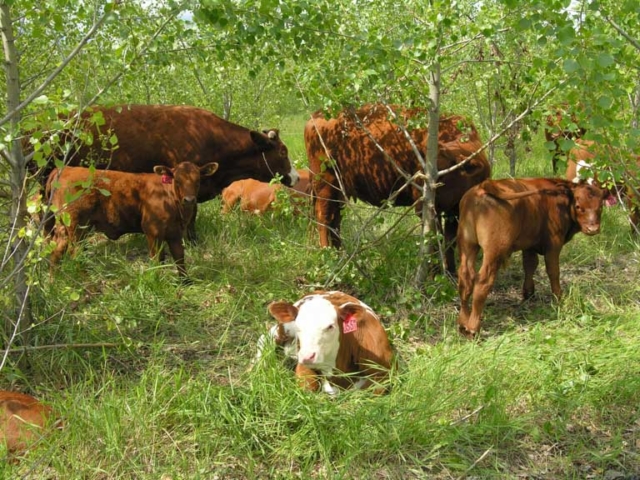Multi-year AWES client and local Camrose County farmer was highlighted by The Western Producer as a leader in sustainable agriculture and wetland restoration efforts in her county.
In 2017, after meeting AWES staff at a local workshop, the landowner approached AWES with ideas on how to alter the management of her parcel farmland from conventional farming techniques to more holistic, sustainable farming practices. The property, which had been passed down in her family, was historically cleared to facilitate the growing of traditional agricultural crops like wheat and canola. The landowner recognized, however, that certain areas of the farm were producing at lower yields. Through her interaction with various stewardship groups in her county, she developed some ideas about how to convert these marginal areas of cropland into areas where she could grow an new crop – trees.
With the help of AWES staff Noel St. Jean and Luke Wonneck, the project was spearheaded towards a full scale restoration project both of degraded riparian areas surrounding wetlands on the property, and poor yield crop zones around the perimeters of Brenda’s property and road allowances. AWES also planted an eco-buffer and food forest adjacent to the landowners home. Project plans were developed throughout 2017 and into 2018, with on the ground work finally being started in spring of 2019. Approximately 3,100 trees were planted, with another 2000 scheduled to be planted in the spring of 2020. A variety of native trees and shrubs were selected, for various characteristics such as nitrogen fixation properties, fruit provision, wildlife and pollinator habitat, and flood and drought mitigation.
We would like to thank our funders for this project including The Canadian Agricultural Partnership (CAP), PUR Projet, in addition to the landowner herself.
See more details and a full except from the western producer here.